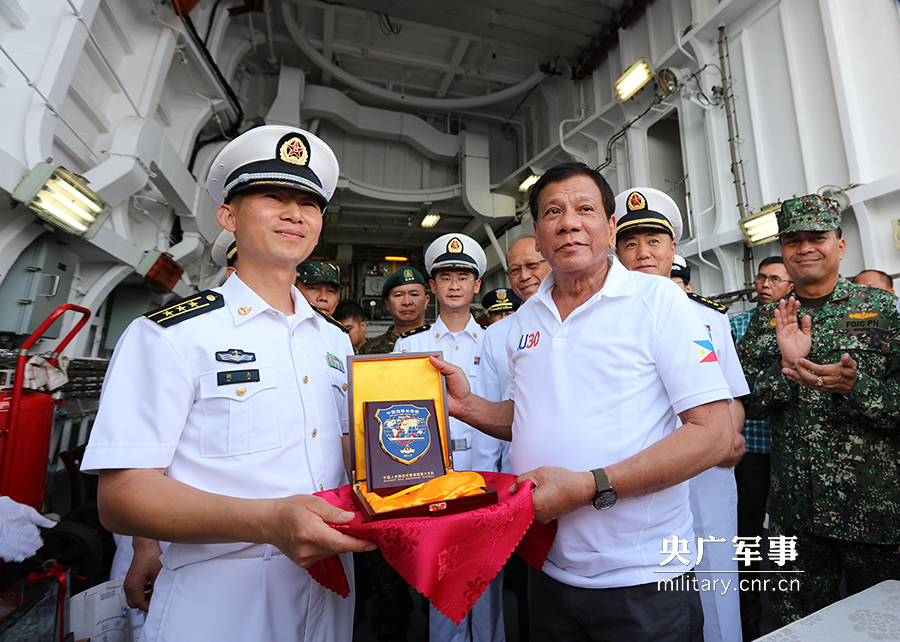Well the situation in SCS has calmed down quite a bit with this symbolic visit. But what you know the warmonger never rest on their laurel. they mounted vilification campaign again
Excerpt
Washington should be wary about a Beijing that has taken incremental steps toward small-stick diplomacy.
May 2, 2017
Deterring aggression in the “gray zone” is hard. The keeper of an existing order—an order such as freedom of the sea—finds itself conflicted. That’s because gray-zone aggressors deliberately refuse to breach the threshold between uneasy peace and armed conflict, justifying a martial response. Instead they demolish the status quo little by little and replace it with something new.
Piecemeal assaults compel the status quo’s defenders to consider unappealing options. They can act first and bear the blame for the outbreak of war, for taking excessive risk, for provoking the revisionist power or for destabilizing the peace. Or, unwilling to incur such costs, they resign themselves to inaction or half-measures. Predisposed to put off difficult decisions, politicians can waffle, and surrender the initiative. Or they can escalate, and see their nation branded a bully.
An unpalatable choice. Gray-zone strategies are designed precisely to impose such quandaries on custodians of an existing order.
The stepwise approach is reminiscent of
of the rebellious child who whittles down his parents’ willpower at the seashore. “Tell a child not to go in the water,” maintains Schelling, “and he’ll sit on the bank and submerge his bare feet; he is not yet ‘in’ the water. Acquiesce, and he’ll stand up; no more of him is in the water than before. Think it over, and he’ll start wading, not going any deeper; take a moment to decide whether this is different and he’ll go a little deeper, arguing that since he goes back and forth it all averages out. Pretty soon we are calling to him not to swim out of sight, wondering whatever happened to all our discipline.”
Over the past couple of decades, likewise, Beijing has devised a variety of stratagems to flummox those who defy its claims to sovereignty over islands, sea and sky. China started out with light-gray, largely inoffensive gray-zone tactics twenty-five years ago, but they darkened into coercion over time as its ambitions and power mounted.
First, the Chinese Communist Party (CCP) leadership codified its claim to offshore territory in
in 1992, proclaiming that China held jurisdiction over disputed land features in the East and South China seas along with the surrounding waters. Western governments and press outlets deemed this development barely newsworthy, in large measure because Beijing made little effort to enforce the law. Though light in tincture, however, this Law on the Territorial Sea and Contiguous Zone comprised an extravagant statement of purpose toward China’s near seas.
This largely forgotten edict prepared the way for additional assertions of legal authority while justifying more muscular gray-zone strategies. In 2009, for instance, the CCP leadership delivered
to the United Nations bearing a “nine-dash line” that delineated its claim to
over some 80–90 percent of that waterway. It later flouted a
that gutted its legal case for sovereignty. Beijing, it seems, has little fealty to commitments it has freely undertaken—
—when operating in the gray zone.
China also projected its claims skyward. In 2013 the leadership declared an
, encompassing Japanese- and Korean-administered islands. It asserted the power to regulate air traffic moving up and down the Asian seaboard, parallel to the coast, rather than traffic bound for China. Controlling airspace—not defending China against inbound aircraft—represented its true aim. Yet here, too, Beijing has only halfheartedly sought to enforce its air-defense zone—most recently by
bound for South Korea. Its skyward strategy remains light gray in execution, if not in principle.
Second, China’s “smile diplomacy” ranked as the lightest of light-gray ventures. Commencing in the early 2000s, Beijing fashioned a diplomatic narrative drawing on the charisma of China’s ancient mariner,
. The Ming Dynasty admiral commanded a series of “treasure voyages” six centuries ago, reinvigorating China’s tribute system in Southeast and South Asia without indulging in territorial conquest. Modern-day officialdom took pains to reassure fellow Asians that China would follow Zheng He’s pattern. It would make itself a potent yet beneficent sea power. It could be trusted not to abuse lesser neighbors.
In short, smile diplomacy constituted an effort to
—and mute resistance to its maritime rise. Until the late 2000s, when China turned more assertive, regional audiences were by and large receptive to this soothing message.
(cont)


